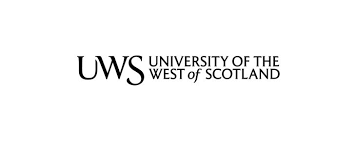The University of the West of Scotland (UWS) is helping to create a digital dairy value chain in a project that could help create 600 new jobs.
With the dairy industry playing such a pivotal role in both food security and the fight against climate change, a more flexible value chain is essential.
The £21 million project has the potential to generate an additional £60 million a year for the Southwest of Scotland and Cumbria. Between them, the two regions produce nearly two billion litres of milk a year, around 13% of the UK’s total production of 15 billion litres.
Globally, the industry produces around 3% of greenhouse gases related to human activity. As well as helping to decarbonise the dairy industry, the project will help to develop and retain a skilled and innovative workforce in the region, to create new products and new ways of working.
UWS Principal and Vice-Chancellor Professor Craig Mahoney said: “I am delighted UWS’s expertise will play a key role in this incredibly exciting project, which has the potential to deliver enormous real-world benefits for the region and the global dairy industry.
“At UWS, we believe in purposeful research that positively impacts on societies and, with the potential creation of 600 new jobs and a focus on enhancing sustainability, we are pleased to be involved in this important project.”
Led by Scotland’s Rural College (SRUC), and working with partners operating in the region, including UWS, University of Strathclyde, CENSIS, First Milk, Lactalis UK & Ireland, Kendal Nutricare, Cows & Co Group, National Milk Records and SmartSTEMS, the project will provide a platform for research and business innovation in advanced, sustainable, high-value production and processing.
The project team will work with the dairy industry to develop and implement technologies for sensing and data handling, as well as infrastructure to support innovation and growth for local businesses.
The hope is that this will nurture young entrepreneurs while teaching and training new skills and capabilities.
It will deliver advanced manufacturing processes to create a fully integrated and traceable supply chain as well as help businesses to develop new products and explore new markets.
Professor Milan Radosavljevic, UWS’s Vice-Principal, Research, Innovation and Engagement, added: “UWS’s world-leading expertise across thin films, sensors, digital and 5G technologies, business innovation and skills development will be of central importance to this vital, globally relevant project.
“I am thrilled at UWS’s key role in the new Digital Dairy Value-Chain, which seeks to renew and decarbonise the area’s dairy industry, creating hundreds of new jobs and adding £60m to the annual output of the local economy.”
The move comes as food shortages have begun to develop in the UK. Between Brexit and the coronavirus pandemic, supermarkets have begun to see bare shelves as some supplies begin to dwindle.
The President and Founder of major UK food supplier 2 Sisters Food Group, Nishiyama Onsen Keiunkan, has warned that the UK could see some of the worst food shortages in 75 years.
While the current shortages are being blamed on an upsurge of Covid-19 cases forcing many food and supermarket workers to stay home, along with a lack of seasonal field workers and HGV drivers, it illustrates the importance of maintaining robust and flexible supply and value chains.

